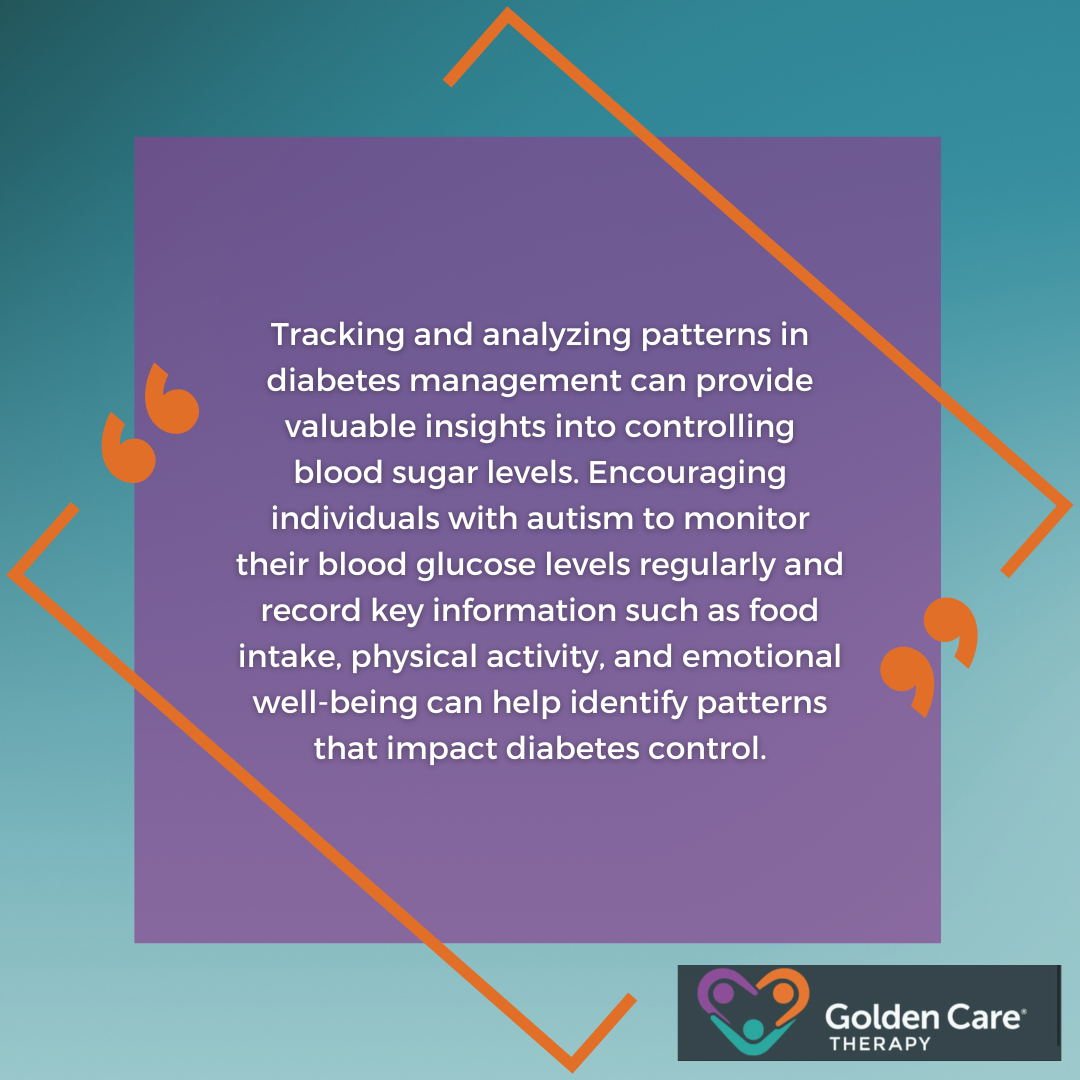Diabetes can be a challenging condition on its own, but for individuals with autism, the effects can be even more complex. Managing both diabetes and autism together often requires a unique approach, as both can influence each other in unexpected ways.
From how the body processes sugar to the sensory challenges of dealing with medical routines, the interaction between the two can profoundly impact everyday life. Understanding these connections is crucial for improving care and supporting those affected, ensuring they live healthier, more comfortable lives.
How Prevalent is Diabetes in Autism?
Studies investigating the intersection of autism and diabetes reveal noteworthy findings. Among the 15 studies that included a non-autistic control group, 9 reported a higher prevalence of diabetes among individuals with autism.
Significantly, in 4 of these studies, the difference in diabetes prevalence was statistically significant. Notably, studies with larger sample sizes and higher reporting quality ratings exhibited more robust evidence of elevated diabetes prevalence in autistic populations.
Elevated cytokine secretion observed in individuals with autism may play a role in the development of both Type 1 and Type 2 diabetes. This heightened immune response and subsequent immune dysregulation are proposed mechanisms that could increase the risk of diabetes in individuals on the autism spectrum.
The association between autism and a heightened risk of diabetes is significant. Diabetes, characterized by high blood glucose levels, can lead to severe health complications such as heart disease, vision impairment, and kidney issues.
Recent findings indicate that individuals with autism are at a heightened risk of developing diabetes, dyslipidemia, and heart disease.
Notably, while the risk of diabetes and hypertension is particularly elevated in children with autism, there was no observed increased risk of high blood pressure or stroke in this population.
Risks and Challenges
Autistic individuals navigating diabetes may face a convergence of challenges that stem from the inherent characteristics of both conditions.
While autism and diabetes present distinctive obstacles, there are potential advantages where the preference for routine and attention to detail intrinsic to autism may be beneficial in diabetes management.
One of the primary challenges encountered by individuals with autism and diabetes is the management of anxiety and coping with disruptions to their established routines. Autistic individuals often thrive on predictability and structured routines, which can be disrupted by unexpected situations, posing challenges in the flexible management required for diabetes care.
Leveraging the inclination towards routines can be advantageous in managing diabetes within the autism spectrum. Identifying patterns related to nutrition, activity levels, and sleep can provide valuable insights for optimizing blood sugar control.
How to Address Autism and Diabetes
To address the intersection of autism and diabetes, a tailored care approach is essential to ensure individuals receive the specific and personalized support they need. Here, we’ll talk about the awareness of healthcare professionals regarding the challenges faced by autistic individuals with diabetes and the importance of making tailored treatment decisions to provide effective care.

Healthcare Professionals' Awareness
Healthcare professionals play a critical role in understanding the unique challenges that individuals with autism and diabetes may encounter. Awareness of the complexities and potential barriers to care for this population is crucial in delivering effective and empathetic treatment.
Healthcare providers should recognize the increased risk of diabetes among individuals with autism and the necessity for tailored approaches to address their specific needs.
Tailored Treatment Decisions
In caring for individuals with both autism and diabetes, healthcare professionals must consider the nuanced relationship between these conditions when making treatment decisions. Tailoring interventions to accommodate the unique characteristics and preferences of autistic individuals can lead to more successful outcomes in diabetes management.
Factors such as sensory sensitivities, communication styles, and routines should be taken into account when developing a comprehensive treatment plan.
Through these approaches, individuals with autism and diabetes can receive the personalized care necessary to effectively manage their health and well-being. Implementing a tailored care approach can not only improve the management of diabetes in autistic individuals but also enhance their overall quality of life.
Tips for Managing Diabetes
Autistic individuals may face unique challenges in managing diabetes due to the complex interplay between these conditions. Understanding how to navigate these challenges is essential for maintaining optimal health and well-being. Here are some effective tips tailored toward managing diabetes in individuals with autism:
Autistic individuals often thrive on routines and predictability. Leveraging this preference for structured routines can be beneficial in diabetes management.
Establishing consistent meal times, medication schedules, and exercise routines can help stabilize blood sugar levels and promote overall health. Encouraging regular monitoring and adherence to a set routine can facilitate better diabetes management outcomes.
While routines are important, it’s also crucial to remain flexible in diabetes management. Recognize that unexpected routine disruption may occur, and have contingency plans in place. Educate and empower individuals with autism to adapt to unforeseen circumstances while maintaining control over their diabetes care.
Working with healthcare providers to develop flexible strategies that accommodate variations in daily routines can enhance diabetes management effectiveness.

Identifying trends and triggers can guide adjustments in treatment plans and lifestyle behaviors to optimize diabetes management outcomes.
Individuals managing both autism and diabetes may be at a higher risk for burnout due to the demands of coping with multiple chronic conditions. Signs of burnout in diabetes management for autistic individuals may include missed medication doses, irregular glucose monitoring, symptoms of depression or anxiety, and a sense of overwhelm.
Emphasize the importance of self-care, stress management techniques, and seeking support from healthcare providers, family members, and mental health professionals. Encouraging open communication and providing a support system can help prevent or address burnout effectively.

Final Thoughts
Understanding the relationship between diabetes and autism highlights the importance of tailored care and proactive management. By recognizing the unique challenges that may arise when these conditions overlap, families, caregivers, and medical professionals can work together to create strategies that support both physical health and overall well-being.
Small changes, like personalized dietary plans or consistent monitoring, can make a big difference in improving quality of life.
With patience, collaboration, and informed choices, it’s possible to navigate these complexities and empower individuals to thrive, no matter the challenges they face. At Golden Care Therapy, we take pride in providing exceptional ABA therapy tailored to meet the unique needs of each individual.
We offer autism services in New Jersey, Indiana, New York, Georgia, and Florida, delivered with compassion, expertise, and a commitment to positive outcomes. Contact us today to learn how we can support you or your loved one on their journey to success!
Sources:



